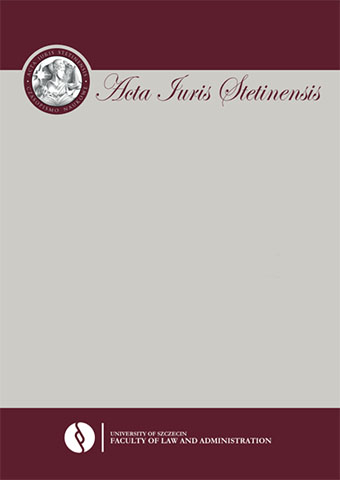| 1. | Bercusson B., The EU Charter of Fundamental Rights and the Constitution of the European Union, in: European Labour Law and the EU Charter of Fundamental Rights, B. Bercusson (ed.), Baden-Baden 2006. |
| 2. | Broughton A., Commission rejects proposed agreement in hairdressing sector, 2013, https://www.eurofound.europa.eu/publications/article/2013/commission-rejects-proposed-agreement-in-hairdressing-sector (accessed: 01.08.2020). |
| 3. | Delfino M., The reinterpretation of the principle of horizontal subsidiarity in European social law, “WP CSDLE ‘Massimo D’Antona’ INT” 2020, no. 152. |
| 4. | Garben I., Govaere S., The multi-faceted nature of better regulation, in: The EU Better Regulation Agenda: A Critical Assessment, I. Garben, S. Govaere (eds.), Oxford 2018. |
| 5. | Hierlemann D., Huesmann C., More Initiative for Europe’s Citizens, Future of Democracy, 2018, https://www.bertelsmann-stiftung.de/fileadmin/files/BSt/Publikationen/GrauePublikationen/ZD_EINWURF_2_2018_EN_final2.pdf, (accessed: 01.08.2020). |
| 6. | Laulom S., Better regulation and the social acquisition: Is the REFIT fit for purpose?, “ELLJ” 2018 9(1). |
| 7. | Schwarze J., European Administrative Law, London 2006. |
| 8. | Skupień D., European Social Partners’ Agreements – Current Situation and Perspectives, in: Obrana pracovního práva. Pocta prof. JUDr [The Defence of Labour Law], M. Bělinovi, J. Pichrt, K. Koldinská, J. Morávek (eds.), Prague 2020. |
| 9. | Skupień D., Porozumienia europejskich partnerów społecznych [Agreements of European Social Partners], Toruń 2016. |
| 10. | Vogel L., The fight to protect the hairdressers’ health: the inside story, 2018, |
| 11. | https://www.researchgate.net/publication/325929496_The_fight_to_protect_hairdressers’_health_the_inside_story_2018/citation/download (accessed: 01.08.2020). |
| 12. | Welz C., The European Social Dialogue under Articles 138 and 139 of the EC Treaty: Actors, Processes, Outcomes, Alphen aan den Rijn 2008. |






